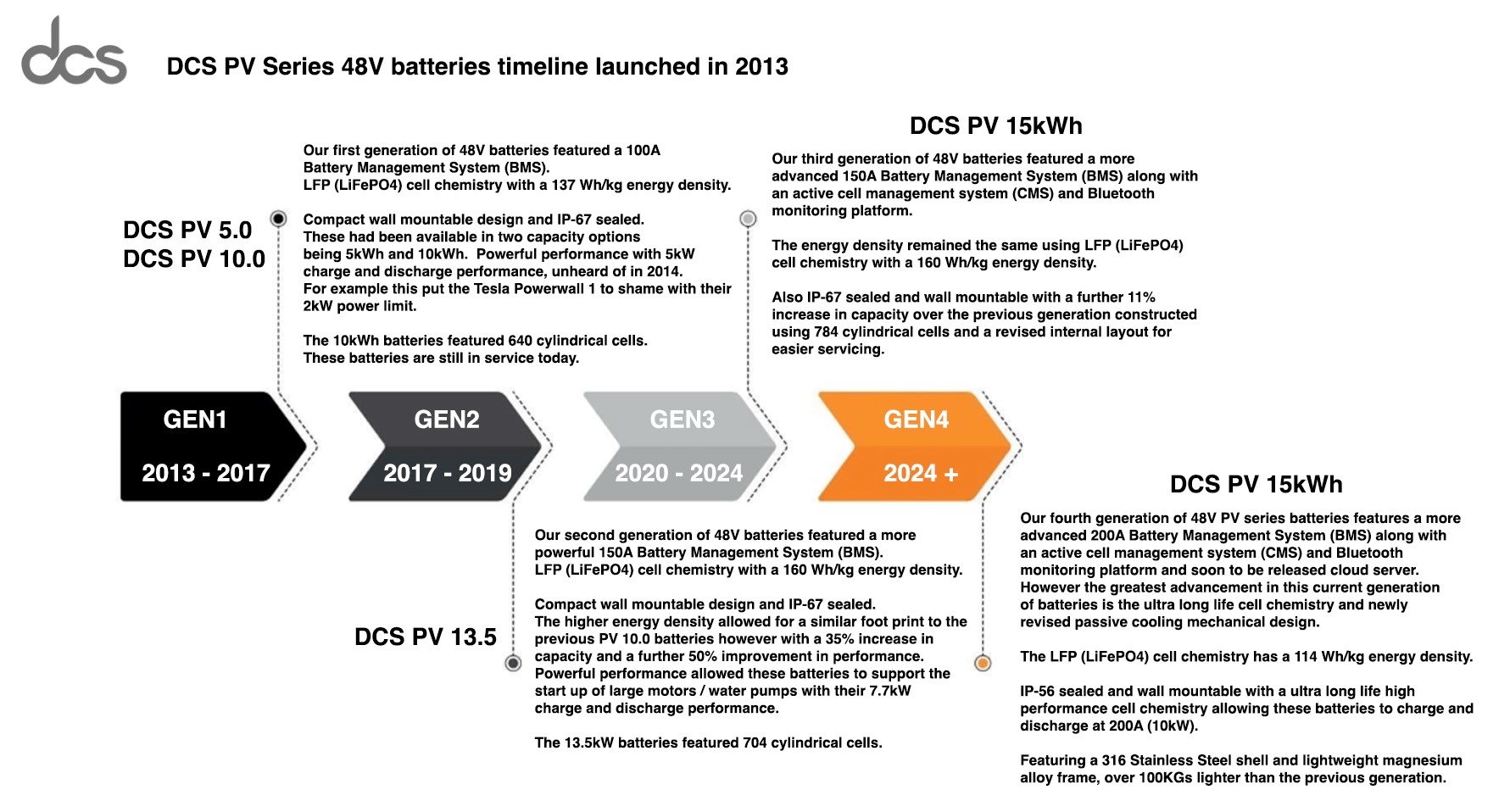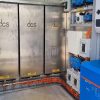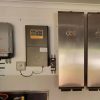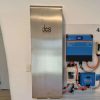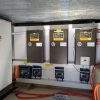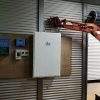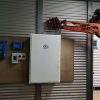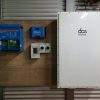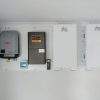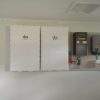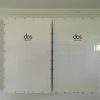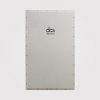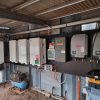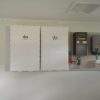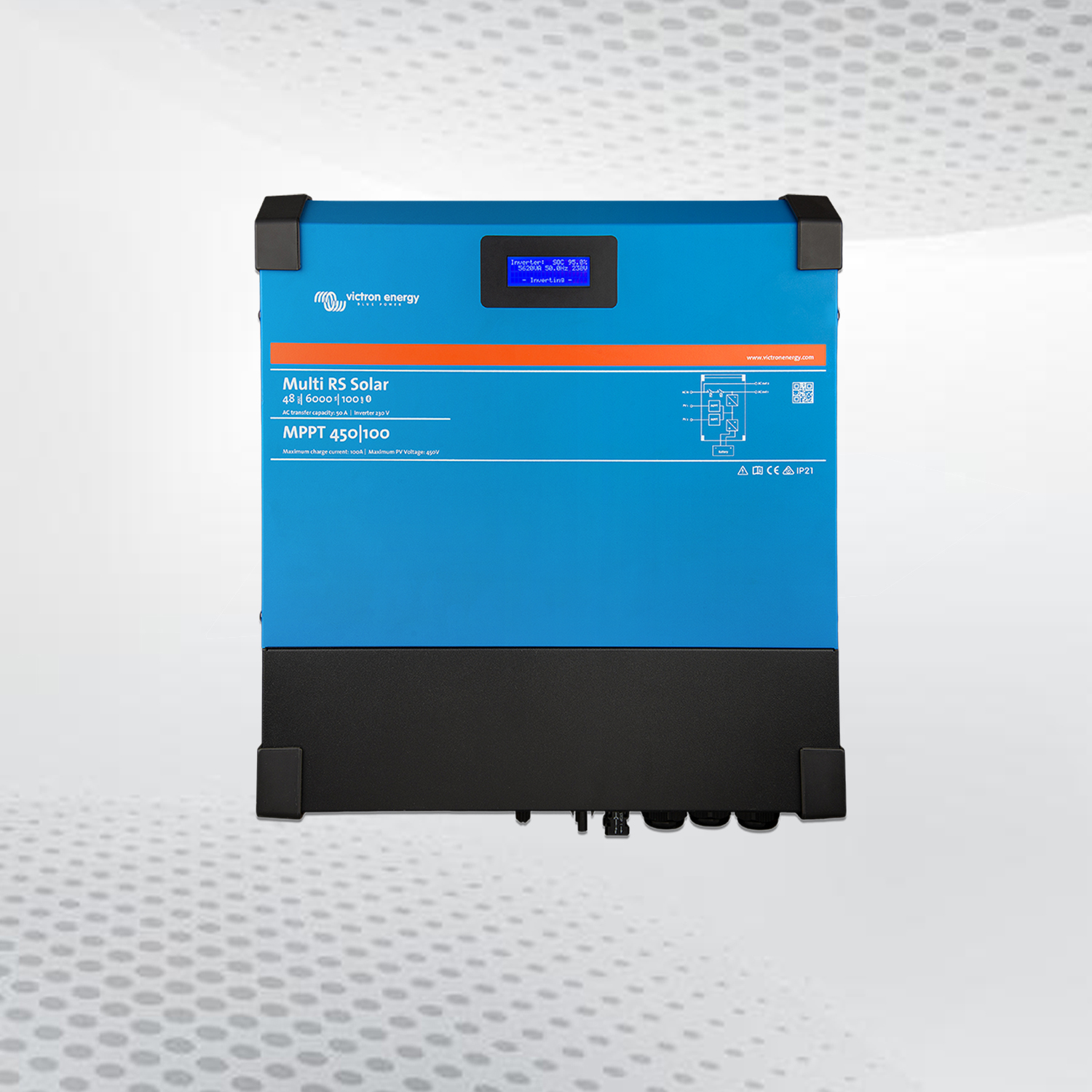Explosion-proof / No leakage Low Internal Resistance / Proven Stability Ultra-long cycle life Contracted A Grade cell supply
Ultra-Safe

Stable

Long Life

Guaranteed A Grade
DCS batteries stand apart thanks to our commitment to proven, stable cell chemistries and rigorous in-house testing. Every battery, cell, and BMS platform is engineered, validated, and field-tested by our team to ensure unmatched reliability in real-world conditions. And as an Australian technology company, choosing DCS batteries supports local innovation and keeps your investment within the Australian economy. The result is a range of batteries that are genuinely better built, safer, and longer lasting than typical lithium alternatives.
Price Includes GST
*Price excludes Freight cost
Off Grid Survival Guide
Availability: These batteries are manufactured at our factory in Coomera, QLD and are made to order – Allow 2 weeks from order placement before pickup/dispatch
Original price was: $11,900.00.$9,950.00Current price is: $9,950.00.
DCS PV Series (Hybrid and Off-Grid) 15kWh LiFePO4 battery pack
- Super fast charging capability
- LFP low energy density ultra long life cell chemistry
- Compact Size & Wall Mountable
- IP-56 Sealed Design (Water & Dust proof)
- Operating temperature range from -10 degrees C to 50 degrees C
- 8 Year Unlimited Cycle Warranty / 70% capacity retention guarantee
- Wall mountable compact design (designed for stationary applications)
- Plug & Play with Victron & Selectronic Systems
- 316 Stainless Steel & Magnesium Alloy lightweight construction
Introducing the DCS 15kWh PV Series – The Pinnacle of 48V Lithium Battery Innovation
After a decade of research, development, and engineering excellence, Deep Cycle Systems (DCS) proudly presents the latest evolution in off-grid energy storage: the DCS 15kWh PV Series 48V Lithium Battery Packs. Built with ultra-long-life, low-energy-density lithium iron phosphate (LiFePO4) cells, these battery packs deliver unparalleled reliability, safety, and endurance making them the ultimate choice for demanding off-grid power systems.
This documentary video provides an excellent overview of the Australian Electricity Network, and why the costs of energy will further increase in the coming years
Engineered for Maximum Service Life and Efficiency
Battery selection is the most critical investment in any power system, directly impacting both performance and longevity. The DCS 15kWh PV Series is specifically designed to provide exceptional durability, leveraging the safest and most proven lithium chemistry available today. Featuring an advanced low- energy-density cell design, these batteries offer a new level of safety, extended service life, and robust performance.
To achieve the longest operational lifespan, we highly recommend installing these batteries in climate-controlled environments. However, they also perform efficiently in well-ventilated, cool locations when climate control isn’t an option.
Built for the Harshest Environments
Crafted from IP-56 rated 316 Marine Grade Stainless Steel, the DCS 15kWh PV Series is fully sealed, waterproof, and dustproof—ideal for both salty coastal conditions and remote, dusty outback locations. Designed with passive cooling technology, these battery packs achieve exceptional round-trip efficiency without relying on liquid cooling systems, ensuring minimal energy waste. The compact, wall-mountable design allows for easy installation with minimal floor space usage. Simply secure the wall bracket, then lift the battery into place using the built-in lifting eyelet.
Seamless Integration with Leading 48V Systems
The DCS 15kWh PV Series is fully plug-and-play compatible with most 48V systems on the market. For optimal performance, we recommend pairing these batteries with Victron or Selectronic battery inverters, ensuring a seamless and robust energy solution.
Unrivaled Warranty & Longevity
Backed by an unlimited cycle warranty, we guarantee that each DCS 15kWh PV Series battery pack will retain at least 70% of its original capacity after 8 years, providing unmatched reliability and peace of mind.
High-Powered Performance for Maximum Energy Independence
Each DCS 15kWh PV Series battery pack is engineered for high- performance solar energy storage and rapid recharging. With a 1:1 solar power-to-battery ratio, you can efficiently charge these batteries using two 100A MPPT charge controllers (200A total) per battery pack, supported by 15kW of solar input.
For peak efficiency, we recommend DC-coupled system designs, which now achieve 95%+ efficiencies. Each DCS 15kWh PV Series battery pack can support up to 10kW of continuous inverter output, enabling you to harness and utilise significant amounts of power during sunlight hours.
For example, in Southeast Queensland (SEQ), with an average of 5 hours of sunlight per day, on a single DCS 15kWh battery pack this system allows you to consume up to 50kWh of power daily while still ensuring the battery is fully recharged for essential nighttime usage.
Upgrade to the DCS 15kWh PV Series – The Future of Off-Grid Energy Storage
With industry-leading technology, robust construction, and superior efficiency, the DCS 15kWh PV Series is the perfect solution for anyone seeking a reliable, high-performance, and future-proof off-grid energy power system.
Get in touch with us today to learn more about how the DCS 15kWh PV Series can revolutionise your energy independence.
| Technical Specifications: | – |
|---|---|
| Design Voltage | 48V |
| Nominal Voltage | 51.2V |
| Nominal Capacity | 293Ah |
| Nominal Energy | 15000Wh |
| Usable Storage | 15kWh |
| Case Dimensions (L x W x H) | 1440mm x 440mm x 215mm |
| Weight | 145Kgs |
| Continuous Charge/Discharge Current | 200A(10Kw) / 200A (10Kw) |
| Cycling Voltage Range | 50.0V ~ 55.0V |
| Bulk Charge Voltage | 55.0V |
| Float Voltage | 54.0V |
| LVD (Low Voltage Disconnect) | 50.0V |
| Nominal Discharge Current | 1C |
| Nominal Charge Current | 1C |
| Available Operating Temperature | -10 ~ 50°C |
| Optimal Operating Temperature | 15 – 30°C |
| Longterm Storage Temperature | 0 – 30C |
| Cooling Design | Natural Convection |
| Ingress Protection Rating | IP-56 |
| Interface Internal BMS | BMS (RS485) |
| Certifications | UN 38.3, IEC 62133 & 62619 |
Australia isn’t a tiny country; instead, it spans thousands of square kilometres, with most of the population across the eastern coastline side. Many families reside in mainland Australia where life is very harsh as the various utility companies find it hard to facilitate them. Electricity is a basic necessity; we can’t imagine living without it without that. The solution here is the off-grid energy solutions, while solar off-grid solutions are on top as Australia is blessed with sunlight more than eight hours a day.
The solar system will produce electricity continuously during the daytime. At the same time, the LiFePO4 off grid batteries are a great energy source when sunlight isn’t an option due to bad weather or evening time. Deep Cycle Systems is an energy company serving Australian families by providing affordable energy solutions that best suit their needs. We are a team of committed experts who are industry leaders.
Lithium-ion Vs Lead-Acid Batteries
Lithium-ion batteries or LiFePo4 batteries have matured enough to replace the lead-acid batteries completely. They are far better than them, with many advanced features that add value. A lead-acid battery is the first one that humans have used for over 150 years; however, they seem to be out of touch with modern functions. On the other side, a lithium phosphate battery is about three-decades-old technology; however, it provides numerous benefits that a lead-acid battery can’t compete with.
An off-grid lead-acid battery needs regular maintenance and check-up to avoid battery damage, while it also requires ventilation to prevent any explosion due to hydrogen gassing. This is not the case with a lithium battery, as it is designed and proved to bear harsh weather conditions. It can operate between five degrees Celsius and sixty-five degrees Celsius. Apart from its role for domestic use, a LiFePo4 battery is getting the attention of electric vehicle manufacturers aerospace and marine projects.
A significant advantage of a lithium battery over a lead-acid battery is its extended backup time due to its ability to store more charge, and surprising element is its compactness with many features to outperform lead-acid technology, including:
 High Energy Density
High Energy Density
Off-grid LiFePo4 batteries are known for their ability to store more energy than any other technology, and this makes them lightweight, and you can quickly move them when required. These batteries are three times lighter than a typical lead-acid battery backup.
No Memory Effect
Memory effect in a battery can lead to energy losses as it impacts the ability to hold current. It is also known as the battery effect or lazy battery. This could cause a repeated recharge cycle after a battery is used partially and thus not discharged to its full potential. That is not the case in a lithium-ion battery. You can charge and discharge a lithium battery as per your requirements.
Low Self-Discharge
A self-discharge is a condition in which a battery loses its stored energy without connecting to an active source. This phenomenon is caused by the chemical reaction of a battery and impacts the lifespan of a battery. Typically, general batteries have a ten to twenty per cent ratio of self-discharge. In contrast, the lithium-ion battery bank has a shallow discharge rate of under three per cent during a month.
Deep Discharge
A lithium battery provides more than 90% discharge ability to make the best use of your investment. A lead-acid battery will provide only fifty per cent of the stored energy, which means you can benefit from only half of the investment in your battery, and the rest is considered a useless expense. LiFePO4 off grid batteries can be charged in a brief time.
 Lithium Ion Solar Batteries for Round the Clock Electricity
Lithium Ion Solar Batteries for Round the Clock Electricity
At Deep Cycle Systems (DCS), we understand the importance of reliable and sustainable energy solutions. That’s why our Lithium Ion Solar Batteries are designed to provide round-the-clock electricity. These batteries are perfect for solar power systems, ensuring that you have a continuous power supply, day and night. By storing solar energy efficiently during the day, our batteries ensure that this energy is available for use whenever you need it, providing a seamless and eco-friendly energy solution.
Uninterrupted Power for Your Daily Needs
Our Lithium Ion Solar Batteries offer the assurance of an uninterrupted power supply, making them ideal for both residential and commercial solar installations. With DCS, you’re not just harnessing the power of the sun; you’re ensuring that this sustainable energy is available 24/7, catering to all your electricity needs.
 DCS Hybrid Solar Battery Bank can Be Charged up to 200 Amps
DCS Hybrid Solar Battery Bank can Be Charged up to 200 Amps
DCS’s Hybrid Solar Battery Bank is a powerhouse of efficiency, capable of being charged at rates up to 200 amps. This high charging capacity allows for rapid energy storage, maximising the efficiency of your solar power system. It’s especially beneficial for systems with high solar input or for users looking to quickly recharge their battery bank. Our battery bank’s ability to handle such high charging rates makes it an excellent choice for dynamic and high-capacity solar applications.
Rapid Charging for Efficient Energy Management
With the capability to charge at up to 200 amps, our DCS Hybrid Solar Battery Bank ensures that you’re making the most of your solar energy. This rapid charging capacity means that your battery bank is ready to store large amounts of solar power quickly, enhancing the overall efficiency and effectiveness of your solar energy system.
 DCS Hybrid Off Grid Lithium Battery Supports Continuous Discharge at up to 250 Amps
DCS Hybrid Off Grid Lithium Battery Supports Continuous Discharge at up to 250 Amps
Our DCS Hybrid Off Grid Lithium Battery is engineered to support continuous discharge at rates of up to 250 amps. This high discharge capability is ideal for off-grid systems that require substantial and consistent power output. Whether you’re powering a remote homestead, an off-grid workshop, or any setup that demands a reliable and robust energy source, our battery is designed to meet those needs effectively.
Reliable Power Supply for High-Demand Off Grid Applications
The ability to continuously discharge at up to 250 amps makes our DCS Hybrid Off Grid Lithium Battery a reliable choice for high-demand off-grid applications. This high discharge rate ensures that even the most energy-intensive devices and systems can be powered effectively, providing you with a dependable and powerful off-grid energy solution.
 Off Grid Solar System With Batteries By DCS Ensure You Have a Reliable Energy Storage System
Off Grid Solar System With Batteries By DCS Ensure You Have a Reliable Energy Storage System
At Deep Cycle Systems (DCS), we specialise in providing top-tier Off Grid Solar System with batteries that guarantee a reliable energy storage solution. We understand the criticality of having a dependable power source when you are off the grid. Our systems are designed to store solar energy efficiently, ensuring that you have access to electricity whenever you need it. Whether it’s for a remote cabin, an RV, or a self-sustaining home, our off-grid solar systems with DCS batteries offer the resilience and reliability you need for uninterrupted power.
Consistent and Sustainable Power for Your Off-Grid Needs
Choosing our Off-Grid Solar System with DCS batteries means you’re opting for a system that delivers consistent and sustainable power. Our batteries are designed to maximize solar energy utilization, providing you with a reliable and eco-friendly power solution for all your off-grid requirements.
 Off Grid Solar Battery Storage Provide 99% Faradic Charge Efficiency (25C) Rate
Off Grid Solar Battery Storage Provide 99% Faradic Charge Efficiency (25C) Rate
Our Off Grid Solar Battery Storage solutions at Deep Cycle Systems boast an impressive 99% Faradic charge efficiency at a 25°C rate. This high level of efficiency ensures that almost all the energy stored in the batteries is available for use, minimizing energy loss during the charge and discharge cycles. This efficiency is crucial in off-grid solar systems where maximizing the use of stored solar energy is vital. With DCS batteries, you’re investing in a system that delivers optimal performance and energy efficiency.
Maximizing Your Solar Investment
With 99% Faradic charge efficiency, our Off-Grid Solar Battery Storage systems ensure that you get the most out of your solar investment. This efficiency translates to more available power and less wasted energy, making our DCS batteries an ideal choice for those who prioritize energy efficiency in their off-grid solar systems.
 DCS Lithium Off Grid Batteries Rebuildable Design Expected Service Life is 20 Years and More
DCS Lithium Off Grid Batteries Rebuildable Design Expected Service Life is 20 Years and More
At Deep Cycle Systems, our Lithium Off Grid Batteries are not only efficient and reliable but also come with a rebuildable design. This design significantly extends the expected service life of our batteries to 20 years or more. We understand that a long-term energy solution is crucial for off-grid living, and our batteries are designed to meet this need. The rebuildable aspect of our batteries means that they can be serviced and updated, ensuring they continue to provide optimal performance over an extended period.
Long-Term Energy Solution for Sustainable Living
The expected service life of over 20 years for our DCS Lithium Off Grid Batteries represents our commitment to sustainable and long-lasting energy solutions. This longevity ensures that you have a reliable power source for many years, reducing the need for frequent replacements and offering a more sustainable approach to energy storage. With DCS, you’re choosing a future-proof solution for your off-grid energy needs.
 DCS Lithium Solar Battery Package Provides 5000 and More Charge and Discharge Cycles
DCS Lithium Solar Battery Package Provides 5000 and More Charge and Discharge Cycles
Our Lithium Solar Battery Package at Deep Cycle Systems (DCS) is engineered to offer exceptional endurance, providing 5000 and more charge and discharge cycles. This high cycle count signifies the long-term reliability of our batteries, ensuring that they will serve your energy needs for many years. We understand the importance of a sustainable energy solution, especially in solar applications where battery longevity directly impacts the overall system’s effectiveness. With DCS’s solar battery package, you’re choosing a product that promises longevity and consistent performance.
Durable Energy Storage for Your Solar Needs
Choosing our DCS Lithium Solar Battery Package means you’re investing in a battery that’s built to last. With over 5000 charge and discharge cycles, you can rely on our batteries to store and deliver solar energy efficiently, reducing the need for frequent replacements and offering a more sustainable energy solution for your solar needs.
Solar Battery Pack – Optimal Temperature Range is 0 – 45°C
At Deep Cycle Systems, our Solar Battery Pack is designed to operate optimally within a temperature range of 0 to 45 degrees Celsius. This range ensures that the battery performs efficiently under most ambient temperature conditions. Whether you’re in a moderately cold or warm climate, our solar battery pack is designed to maintain its efficiency and longevity. The optimal temperature range is key to ensuring that your solar battery pack operates at its best, providing reliable and consistent power.
Reliable Performance in Various Climates
With an optimal operating temperature range of 0 to 45°C, our Solar Battery Pack is versatile for use in a variety of climate conditions. This flexibility ensures that you can depend on our battery pack for consistent performance, regardless of the ambient temperature. It’s an ideal solution for those looking for a robust and adaptable energy storage option for their solar systems.
DCS 15KWH Cheap Solar Battery Bank – Long-term Storage Temperature Range is 0 – 30°C
Our DCS 15KWH Cheap Solar Battery Bank is not just affordable but also designed for optimal long-term storage, with a recommended temperature range of 0 to 30 degrees Celsius. This range ensures the battery’s longevity and maintains its performance over time, especially when not in use for extended periods. Storing the battery within this temperature range helps preservers its health and efficiency, making it ready for use when you need it.
Preserving Your Investment During Long-term Storage
The suggested storage temperature range of 0 to 30°C for our DCS 15KWH Solar Battery Bank is vital for maintaining the battery’s condition during periods of non-use. By storing the battery within this range, you’re helping to ensure that it remains in top condition, ready to provide efficient and reliable power when brought back into service. It’s a cost-effective solution for your long-term energy storage needs.
Buy Solar Battery Bank and Stop Paying to Grid for Electricity
Buy Solar Battery Bank from Deep Cycle Systems (DCS) is your first step towards energy independence. Say goodbye to relying on the grid for electricity and embrace the freedom of powering your home or business with solar energy. Our solar battery banks store the energy generated from your solar panels, allowing you to use it as needed, day or night. This means you can significantly reduce or even eliminate your electricity bills, making it a smart financial decision in the long run. With DCS, you’re not just buying a battery; you’re investing in a future of sustainable and cost-effective energy.
Embrace Energy Independence
By purchasing a DCS Solar Battery Bank, you’re taking control of your energy needs. You’ll enjoy the benefits of a reliable power source that’s both eco-friendly and cost-effective. Join the growing number of people who are stepping away from grid dependency and into a future of renewable energy with our efficient solar battery solutions.
48v Lithium Solar Battery is a Sustainable Energy Storage Option
Our 48v Lithium Solar Battery at Deep Cycle Systems is the epitome of sustainable energy storage. Designed for the environmentally conscious user, it offers a green solution to meet your energy needs. Lithium batteries are known for their long life, high efficiency, and minimal environmental impact compared to traditional battery chemistries. By choosing our 48v Lithium ion Solar Battery, you’re not only ensuring a reliable power source for your solar system but also contributing to a healthier planet.
Go Green with High Efficiency
Opt for our 48v lithium solar power battery and join the sustainable energy movement. Enjoy the peace of mind that comes with using a battery that supports your eco-friendly lifestyle while providing the high efficiency and reliability that modern solar systems require.
DCS PV Panel Battery comes with IP67 Protection
The PV Panel Battery from Deep Cycle Systems is designed with robustness in mind and features IP67 protection. This high level of ingress protection means the battery is completely protected against dust and can withstand temporary immersion in water. Whether you’re in a dusty desert climate or a region prone to heavy rainfall, our PV Panel Battery is built to endure. This feature is particularly important for outdoor solar applications where exposure to the elements is a given.
Durability in All Conditions
With IP67 protection, our DCS PV Panel Battery ensures that external conditions don’t compromise its performance. You can trust this battery to function flawlessly, even in challenging environments, making it a reliable and durable choice for your solar power needs. Choose DCS for a battery that’s designed to last no matter where you are.
Batteries For PV Panels – Nominal Discharge Current is 1C, Which is Higher than AGM and Lead-Acid Batteries
At Deep Cycle Systems (DCS), our batteries for PV panels set a new standard with a nominal discharge current of 1C, surpassing the performance of traditional AGM and lead-acid batteries. This higher discharge rate means our batteries can release energy at a rate equal to their capacity, providing a more efficient and powerful energy solution for your photovoltaic systems. This feature is particularly beneficial in applications where a quick and substantial power release is required. With DCS batteries, you’re not only getting a reliable energy storage solution but also a more dynamic and responsive power source for your PV panels.
Enhanced Power Delivery for Your Solar System
Our PV panel batteries’ 1C nominal discharge rate ensures that you get the most out of your solar system. You can rely on our batteries for faster and more efficient power delivery, making them an ideal choice for solar applications where performance and reliability are key.
Off-Grid Living with Best Batteries For Solar Off Grid
Embrace off-grid living with the best batteries for solar off grid from Deep Cycle Systems. Our batteries are designed to meet the unique challenges of off-grid life, providing a reliable and sustainable power source away from traditional power grids. Whether you’re in a remote cabin, an eco-friendly home, or a mobile living space, our batteries ensure that you have continuous, reliable power. We understand the importance of dependable energy storage in off-grid living, and our batteries are built to deliver consistent performance day in and day out.
Sustainable and Reliable Energy for Off-Grid Adventures
With DCS’s solar batteries, off-grid living becomes not just feasible but enjoyable. Our batteries provide the backbone for a sustainable lifestyle, offering the reliability and endurance you need for your solar energy systems. Choose DCS for a worry-free off-grid experience, powered by the best in solar battery technology.
Off Grid Battery System Makes You Grid Independent in Even the Remotest Areas
Our Off Grid Battery System at Deep Cycle Systems is your solution to becoming completely grid-independent, even in the most remote areas. We’ve tailored our battery systems to ensure that you have a consistent and robust power supply, no matter how far off the beaten path you are. Our systems are designed for resilience and longevity, providing you with the freedom to live or work anywhere without relying on traditional power sources. With DCS’s off grid solar battery systems, you can enjoy the peace and autonomy of remote living, supported by a reliable and efficient energy storage solution.
Power Autonomy in Remote Locations
Choosing our Off Grid Battery System means you’re choosing independence. You’ll no longer be constrained by the availability of grid power, opening up a world of possibilities for remote living and working. Trust in DCS to power your remote lifestyle with our dependable and efficient off-grid battery systems.
Get Rid of Generators with the Best Batteries For Off Grid Solar Power
Transition to a quieter, more eco-friendly power solution with the best batteries for off grid solar power from Deep Cycle Systems (DCS). Our batteries offer a superior alternative to traditional generators, providing clean, silent, and efficient energy. Ideal for remote cabins, eco-homes, or any off-grid setup, our solar batteries store energy from the sun, delivering consistent power without the noise and pollution of a generator. Embrace the benefits of solar power with DCS batteries and enjoy a sustainable, reliable energy source that keeps you connected, regardless of your location.
Sustainable Power Without the Hassle
Switching to DCS solar batteries means you can enjoy uninterrupted power without the inconvenience and environmental impact of generators. Our batteries are designed for optimal performance in off-grid solar systems, ensuring you have the power you need when you need it, all while contributing to a greener planet.
DCS Lithium Off Grid Solar Batteries Have No Memory Effect
Our Lithium Off Grid Solar Batteries at Deep Cycle Systems are designed to be free from the memory effect, a common issue with some traditional battery types. This means that our batteries maintain their full capacity over time, regardless of their charge and discharge patterns. You don’t have to fully discharge them before recharging, which is essential for maximizing the efficiency and lifespan of your solar energy storage. With DCS batteries, you get consistent performance and longevity, ensuring your off-grid system remains efficient for years to come.
Consistent and Long-Lasting Energy Storage
With no memory effect, our DCS Lithium Off Grid Solar Batteries provide a reliable and consistent energy source for your off-grid solar system. Enjoy the peace of mind that comes with knowing your battery will perform optimally, cycle after cycle, year after year.
Off Grid Batteries For Solar are Made to Bear Extreme Vibration Abuse
At Deep Cycle Systems, our Off Grid Batteries for Solar are engineered to withstand extreme vibration abuse. This rugged design makes them perfect for challenging environments where durability is crucial. Whether it’s for a mobile application, such as in RVs or boats, or in remote locations with harsh conditions, our batteries are built to endure. Their robust construction ensures that they remain reliable and efficient, even under the stress of constant movement and vibration.
Durability for the Toughest Conditions
Our focus on durability means that you can trust our Off-Grid Batteries to deliver uninterrupted power, even in the most demanding situations. With DCS batteries, you’re choosing a product that’s not only powerful but also tough enough to handle whatever comes its way.
Batteries For Off Grid Solar Power – 325 W/H Energy Density Makes Lithium Off-grid Batteries Lightweight
At Deep Cycle Systems (DCS), we are proud to offer our batteries for off grid solar power with an impressive energy density of 325 W/H. This high energy density makes our lithium off-grid batteries notably lightweight, a significant advantage in many solar applications. Whether you’re installing a solar system in a remote location, on an RV, or in a marine setting, the reduced weight of our batteries makes transport and installation much easier. Despite their lightweight design, these batteries pack a powerful punch, providing reliable and efficient energy storage for your off-grid solar power needs.
Enhanced Portability Without Compromising Power
The lightweight nature of our lithium off-grid batteries, coupled with their high energy density, means you don’t have to compromise on power for portability. These batteries are ideal for those who require an efficient, powerful, and yet easily manageable energy storage solution for their off-grid solar systems.
Lithium Ion Solar Batteries – Get Rid of Self Discharge Phenomenon
Our Lithium Ion Solar Batteries at Deep Cycle Systems effectively eliminate the concern of the self-discharge phenomenon, which is common in many traditional battery types. Lithium-ion technology boasts a very low self-discharge rate, meaning that the batteries retain their charge for longer periods when not in use. This feature is especially beneficial for solar power systems, as it ensures that the stored energy is available when you need it, without significant power loss over time. With DCS lithium ion solar batteries, you can enjoy the full potential of your solar investment, with minimal energy waste due to self-discharge.
Maximum Energy Utilization for Solar Systems
By choosing DCS Lithium Ion Solar Batteries, you’re ensuring maximum utilization of the energy captured by your solar panels. The low self-discharge rate means more of the solar energy stored is available for use, making these batteries an efficient and reliable choice for your solar power needs.
Lithium Solar Battery Bank for Efficient Storage and Usage of What Solar Panel Generates
At Deep Cycle Systems (DCS), our Lithium Solar Battery Bank is expertly designed for the efficient storage and usage of the energy generated by your solar panels. We understand the importance of capturing and utilizing every bit of solar energy, especially in off-grid or supplemental power applications. Our lithium battery bank optimizes energy storage, ensuring that the power your solar panels generate is readily available when you need it. This efficiency translates to a more reliable and sustainable power supply, maximizing the benefits of your solar investment.
 Harness Solar Power to its Fullest Potential
Harness Solar Power to its Fullest Potential
With our Lithium Solar Battery Bank, you’re not just storing energy; you’re ensuring its optimal usage. Our batteries are designed to efficiently store the power generated during peak sunlight hours and make it available for use day or night, maximizing your solar system’s effectiveness and providing you with a reliable energy solution.
DCS Lithium Solar Battery Package Comes with UN 38.3, UL 1642, IEC 62133 & 62619, CE Certifications
The Lithium Solar Battery Package from Deep Cycle Systems (DCS) comes with a suite of prestigious certifications, including UN 38.3, UL 1642, IEC 62133 & 62619, and CE. These certifications are a testament to the quality, safety, and reliability of our products. Compliance with these rigorous standards means our batteries meet international criteria for safety, performance, and environmental impact. When you choose a DCS Lithium Solar Battery Package, you’re choosing a product that is recognized globally for its excellence.
Global Standards for Quality and Safety
Our adherence to these international certifications – UN 38.3, UL 1642, IEC 62133 & 62619, and CE – ensures that you receive a product that meets the highest standards of quality and safety. You can confidently incorporate our lithium solar battery package into your solar system, knowing it aligns with global best practices and delivers a level of performance and safety that is world-class.
Enhanced Energy Storage with Deep Cycle Battery Systems for Solar
DCS deep cycle battery systems for solar, designed to ensure that your solar system remains functioning as long as possible. These batteries are built to provide reliable and consistent power, making them a great choice for both homes and businesses. Unlike regular batteries, they can be deeply discharged without damage, so you get to use all of the stored energy you can.
Built tough to last in the climate of Australia, DCS batteries are a bright choice for all those wanting to tap into every bit of their solar power energy while maintaining lasting performance. Plus, you’ll be doing your bit for the planet by using a sustainable energy solution.
Deep Cycle Battery Systems for Solar to Power Household Appliances
A reliable energy solution for your home doesn’t get better than DCS deep cycle battery systems for solar. These batteries store energy collected during the day, giving you backup power when the sun’s gone to bed. Whether it’s keeping your fridge running or powering your air con on a hot summer night, these systems are up for the task.
Here are just a few appliances these batteries can handle:
- Refrigerators
- Washing machines
- Air conditioners
- LED lighting systems
- Televisions
- Computers and laptops
By choosing DCS deep cycle battery systems, you’re not only reducing your electricity bills but also lowering your carbon footprint. It’s a win-win for your household and the environment.
Power Off-Grid Cabins with Solar Lithium Batteries Systems
If you’re after reliable power for your off-grid cabin, DCS solar lithium batteries systems are just the ticket. These batteries store plenty of solar energy during the day, ensuring you’ve got consistent power all night long. With modern technology at their core, these batteries provide the efficiency and reliability you need to enjoy all the comforts of home—even in the bush.
Designed for Australia’s challenging climate, these batteries are built to last, no matter where your cabin is located. With DCS, you can enjoy peace of mind and a truly off-grid experience.
Solar Lithium Batteries Systems for RV and Caravan Power
For road warriors and adventurers, DCS solar lithium batteries systems are the ultimate travel companion. Lightweight yet powerful, these batteries are perfect for RVs and caravans, giving you the freedom to hit the road while keeping your appliances and devices fully powered. Here’s what makes them a standout:
- Quick Charging: Get back on the road faster with minimal downtime.
- Multiple Applications: From cooking appliances to entertainment systems, these batteries have you covered.
- Smart Management Systems: Optimised performance for all your power needs.
With DCS, you can explore Australia’s stunning landscapes without worrying about running out of power.
Why Choose Deep Cycle Batteries for Solar Power Systems?
When it comes to maximising the energy you get from your solar panels, deep cycle batteries are a must. Deep cycle batteries for solar power systems are designed for repeated charging and discharging, making them perfect for storing solar energy efficiently.
DCS deep cycle batteries are built for Australia’s tough conditions, delivering reliable power day in and day out. By integrating these batteries into your solar system, you’re ensuring your panels work to their full potential, no matter the time of day.
Customised Solutions with Deep Cycle Batteries for Solar Power
At DCS, we get that every solar setup is unique. That’s why we offer customised solutions with our deep cycle batteries for solar power. Whether you’re powering a small home or a large commercial operation, we’ll tailor a system to suit your needs perfectly.
What sets our solutions apart?
- Flexible capacity options to match your energy requirements.
- Durable construction that thrives in Australia’s climate.
- Low maintenance for hassle-free operation.
- Advanced Battery Management Systems (BMS) for added safety.
With DCS, you’ll get a solar power system that’s efficient, reliable, and built to last.
Lithium Solar Batteries for Reliable Off-Grid Systems
For those living off the grid, lithium solar batteries are a must-have. These batteries provide consistent power, no matter how remote your location is. With high energy density and a long lifespan, they’re perfect for anyone wanting reliable energy storage.
DCS lithium-solar batteries combine sustainability with performance, giving you the freedom to live off-grid without compromising on power.
Eco-Friendly Lithium Solar Batteries for Every Need
If you’re after a green energy solution, DCS eco-friendly lithium solar batteries are the way to go. They deliver exceptional energy storage while keeping their environmental impact to a minimum.
Here’s why they’re a sustainable choice:
- Made with recyclable materials to reduce waste.
- Designed to minimise environmental impact during production and disposal.
- Superior efficiency to maximise usable energy and minimise waste.
- Suitable for everything from small homes to large commercial setups.
By choosing DCS lithium-solar batteries, you’re investing in a cleaner, greener future.
Li Ion Solar Battery for Advanced Renewable Systems
When it comes to advanced energy storage, Li ion solar battery leads the charge. DCS’s Li ion batteries are designed to meet the growing demand for efficient and long-lasting energy solutions. Whether it’s a residential solar system or a large-scale commercial project, these batteries offer top-notch performance.
Innovative Technology in Li Ion Solar Battery by DCS
At DCS, we’re all about innovation, and our Li ion solar battery is proof of that. They’re packed with the latest technology to deliver reliable and efficient energy storage.
Here’s why they’re a step ahead:
- High discharge rates for quick power delivery.
- Extended lifespan, saving you money on replacements.
- Smart energy management with integrated Battery Management Systems.
- Compact designs that save space and fit into any setup.
With DCS, you’re choosing cutting-edge technology that’s built to perform and built to last.
Why the Best Solar Battery Bank is Essential for Energy Independence
If you’re looking to save on electricity bills and take charge of your energy usage, a solar battery bank is a smart choice. In Australia, with its abundance of sunny days, a dependable battery bank lets you store extra solar power to use during cloudy days or at night.
DCS’s solar battery banks are built to last, offering outstanding efficiency and longevity. They make sure you’re not wasting any of the energy your solar panels produce, helping you rely less on the grid and more on the sun. Not only does this mean lower electricity bills, but it’s also a step towards a more sustainable lifestyle. Good for your wallet, and good for the planet—what’s not to love?
DCS Offers the Best Solar Battery Bank for Reliable Energy Storage
When it comes to a solar battery bank, DCS is a name you can trust. Our battery systems are designed to handle thousands of charging and discharging cycles, giving you a long-lasting and reliable energy storage solution. Whether you’re looking to power a home or a business, our solar battery banks fit the bill perfectly.
Here’s what makes DCS solar battery banks stand out:
- High Energy Density: Stores more power in less space.
- Lightweight Design: Easier to install and transport.
- Long-Lasting Performance: Designed to last over 10 years when properly maintained.
- Durable Design: Engineered to withstand Australia’s tough and unpredictable weather.
With DCS, you can rest easy knowing your energy needs are taken care of, no matter the weather—rain, hail, or shine.
Solar Lithium Batteries for Versatile Energy Storage Solutions
Looking for a flexible energy storage solution? Choose solar lithium batteries by DCS. Compactly sized and reliable, yet easy to incorporate, these batteries serve for a host of uses including household appliances all the way through large energy systems.
They make sure every bit of solar energy you collect is put to good use. Whether it’s running your washing machine during a blackout or powering your entire home through the night, DCS lithium batteries have got you sorted.
Choose Solar Lithium Batteries for Advanced Renewable Energy Systems
If you’re after a top-tier energy solution, solar lithium batteries are the clear winner. At DCS, lithium batteries are crafted to provide extraordinary performance and be apt for the use of advanced renewable energy systems that include solar setups, electric cars, and other portable power tools.
The best features include the following:
- Rapid Charging: This means your system can come back to normal as quickly as possible.
- Lightweight and Easy to Install: Their compact design ensures hassle-free installation, saving you time and effort.
- High Durability: Tough enough for Aussie conditions.
- Comprehensive Support: Our team is here to help you every step of the way.
With DCS lithium batteries, you’re getting cutting-edge technology that’s built to last.
Maximise Efficiency with a Lithium Solar Battery
A lithium solar battery is essential to extracting the maximum power from your solar system. The idea behind such batteries is that they can hold extra energy that the solar panels generate during the day so that there is a supply of reliable power when the sun sets or the weather becomes cloudy.
DCS lithium solar batteries boast impressive energy density and long lifespans, giving you maximum value for your investment. Whether it’s for your home or business, integrating a DCS lithium solar battery means less reliance on the grid and more control over your energy.
Lithium Solar Battery – UV Resistance
Durability is the key with a lithium solar battery, especially in Australia where the sun can be unforgiving. DCS lithium solar batteries are UV resistant so they perform at their best in the harshest conditions.
Here’s what sets them apart:
- Rugged Design: Can handle extreme weather without breaking a sweat.
- UV Protection: Stops UV rays from degrading the battery over time.
- Minimal Maintenance: Set and forget, long lasting performance.
- Indoor and Outdoor Use: Flexible installation options.
With DCS you’re getting a battery that’s built to last in Aussie conditions.
Solar Battery – The Key to Sustainable Energy
A solar battery is essential for anyone looking to make the switch to renewable energy. By storing excess power, DCS solar batteries let you use the energy your panels generate whenever you need it.
This will save you on your power bills and reduce your carbon footprint. As solar becomes more of our lives, getting a DCS solar battery is a smart move for the future.
Investing in DCS Solar Battery for Energy Security
When the grid goes out you don’t have to be in the dark. Investing in a DCS solar battery gives you the energy security you need to keep your home or business powered through outages.
Here’s why DCS batteries are the dependable choice:
- Fast Charging: Recover power quickly so you’re never out for long.
- Built Tough: Designed for Australia’s harsh weather.
- Customisable: Tailored to your specific energy needs.
- High Storage Capacity: Keeps plenty of power on hand.
With a DCS solar battery, you can rely on renewable energy without any of the usual worries.
Solar Battery Solutions for Reliable Energy Independence
DCS offers solar battery solutions that help you take control of your energy. Whether you’re setting up an off-grid system, installing a solar-powered home, or just looking to reduce your reliance on the grid, we’ve got you covered.
With a DCS solar battery, you can store energy during sunny days and use it when the weather isn’t cooperating. It’s a dependable way to embrace renewable energy and enjoy peace of mind knowing you’ve always got power when you need it.
Contact Us
Give us a call at 1300 597 327 to order an off-grid solar battery bank to enjoy uninterrupted, free energy.
Operating Manual
Warranty
Battery Test Centre Analysis (2017-2020)
Results from the ARENA-Funded Battery Test Centre in Canberra (2017-2020)
The ARENA-funded Battery Test Centre in Canberra was a groundbreaking initiative designed to rigorously assess the performance and durability of various 48V lithium battery packs available for supply between 2017 and 2019. This ambitious program provided invaluable insights into battery longevity, efficiency, and resilience under extreme conditions.
In 2019, DCS was invited to participate in the third and final phase of testing by submitting one of its PV series battery packs. However, due to existing commitments for our latest GEN2 PV series 13.5kWh stock—allocated to projects spanning 2019/2020—we were unable to supply a new unit for testing. Instead, we contributed a well-used GEN1 PV 10kWh battery pack from our workshop, which had already been in operation for approximately four years. This allowed us to remain part of the program while putting an aged battery to the test under rigorous conditions.

Key Findings from Public Report 12
Upon commencement, our battery began cycling at a robust 7kWh, as evident in the first ~300 cycles in the below graph while the test centre optimised its integration with SMA inverters. By the conclusion of Phase 3, the battery had successfully completed approximately 1,100 cycles, displaying a steady capacity fade due to natural aging and cell degradation. Despite this, the unit remained fully operational, maintaining a reliable 4.5kWh capacity without any reported faults.
The testing program included:

Phase 1: 8 battery brands

Phase 2: 10 battery brands

Phase 3: 8 battery brands
Out of the 26 battery brands assessed, only 9 successfully completed their testing phase without failure—a testament to their engineering and reliability. We were proud to see that our GEN1 DCS battery was among the select few to withstand the gruelling test conditions. This achievement was particularly notable considering that our GEN1 batteries were originally designed in the early 2010s.
Understanding the High Failure Rate: Why Did 65% of Batteries Fail?
- Extreme Stress Testing
The testing environment was particularly harsh, pushing batteries far beyond typical real-world usage. Each unit underwent three full charge-discharge cycles daily and was exposed to ambient temperature fluctuations ranging from 10°C to 37°C.
For perspective, a well-designed off-grid system typically utilises around 30% of its battery capacity per night, translating to a single cycle every three days—or approximately 120 cycles annually. Even in extreme cases, where system capacity is undersized, annual cycle counts rarely exceed 200 cycles. By contrast, the test conditions imposed an 800% increase in duty cycling, which accelerated wear and exposed design weaknesses.
Unsurprisingly, many batteries on the market at the time were not engineered to withstand such relentless punishment. However, those that successfully completed the test demonstrated superior mechanical design and battery management system (BMS) capabilities, affirming their resilience and quality.
- Electrochemical Composition
The stress testing underscored the limitations of Nickel Manganese Cobalt (NMC) cell chemistry, which exhibited poor cycle life and proved unsuitable for Energy Storage Systems (ESS). While NMC technology offers high energy density—making it the preferred choice for Electric Vehicles (EVs)—its durability in stationary applications is significantly lower.
This insight raises concerns about Vehicle-to-Grid (V2G) integration, where bidirectional charging could further degrade NMC-based EV battery packs, potentially voiding warranties and accelerating battery replacement cycles.
Conversely, batteries utilising Lithium Iron Phosphate (LFP) cell chemistry demonstrated exceptional reliability. Given that LFP technology offers at least double the cycle life of NMC at the time, its superior performance in stationary storage applications was both expected and validated through the test results.
- The Evolution of Battery Storage Technology
The late 2010s marked the dawn of a new era in battery storage technology. For decades, lead-acid batteries had dominated the landscape, but advancements in lithium-ion chemistry began reshaping the industry.
A pivotal breakthrough came in the late 1990s, when John Goodenough, a professor at The University of Texas in Austin, pioneered the development of LFP cathode material. His research laid the foundation for modern lithium-ion batteries, enabling the widespread adoption of rechargeable battery systems across industries—from consumer electronics to EVs and residential energy storage. In 2019, Goodenough was awarded the Nobel Prize in Chemistry, alongside Whittingham and Yoshino, for their collective contributions to lithium-ion battery innovation.
Fast forward to 2025, and the landscape has evolved dramatically. The latest generation of 48V battery systems has benefitted from rapid advancements in LFP technology, significantly improving energy density, cycle life, and reliability. If the same stress test were conducted today, we would undoubtedly see a stark contrast in performance, highlighting the progress made over the past few years.
Conclusion: The Fast-Paced Evolution of Battery Storage
The battery storage industry is a rapidly evolving and highly competitive market, where technological innovation determines longevity. Over the years, numerous startups have emerged and faded, and companies have filed for bankruptcy in their pursuit of viable energy storage solutions.
At DCS, we remain at the forefront of this dynamic industry. As a small Australian company, we have invested over $10 million of our own capital into developing a next-generation Battery Management System (BMS) and our high-performance 48V 15kWh batteries. These cutting-edge energy storage solutions leverage the latest ultra long-life LFP cell chemistry, managed by an advanced BMS that maximises efficiency and longevity.
As the energy sector continues to evolve, DCS remains committed to innovation, reliability, and performance – ensuring that our batteries set the benchmark for excellence in energy storage solutions.
The timeline below outlines the evolution of the DCS PV Series batteries since 2013, highlighting key advancements and innovations introduced with each generation. For more information you can visit the product page here: https://www.deepcyclesystems.com.au/product/pv-series-hybrid-off-grid/
